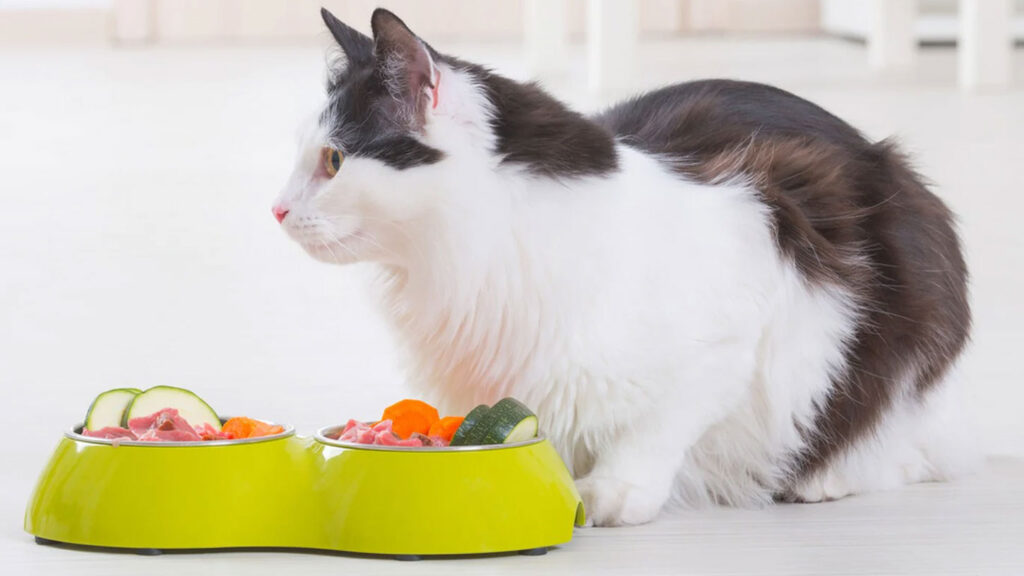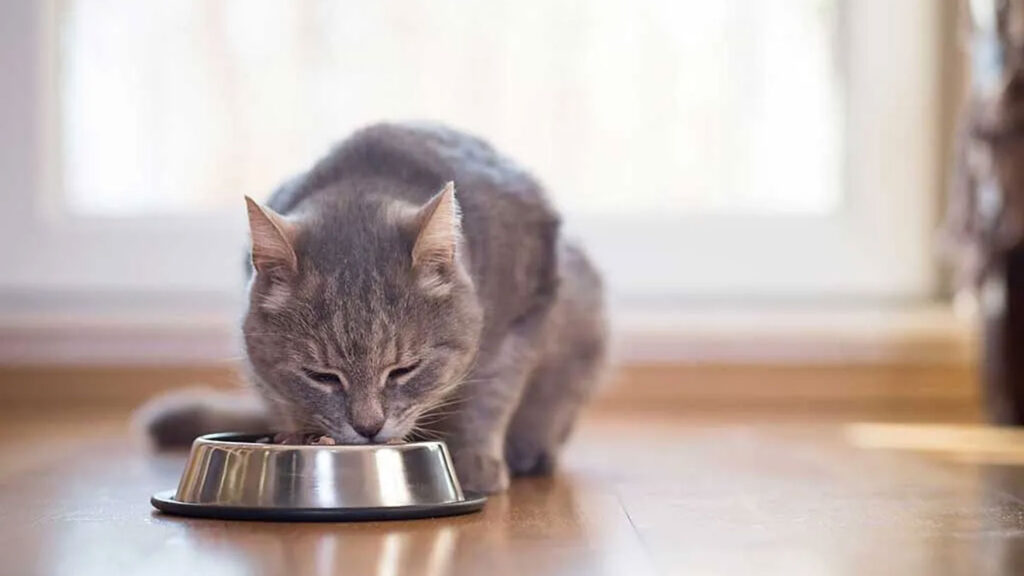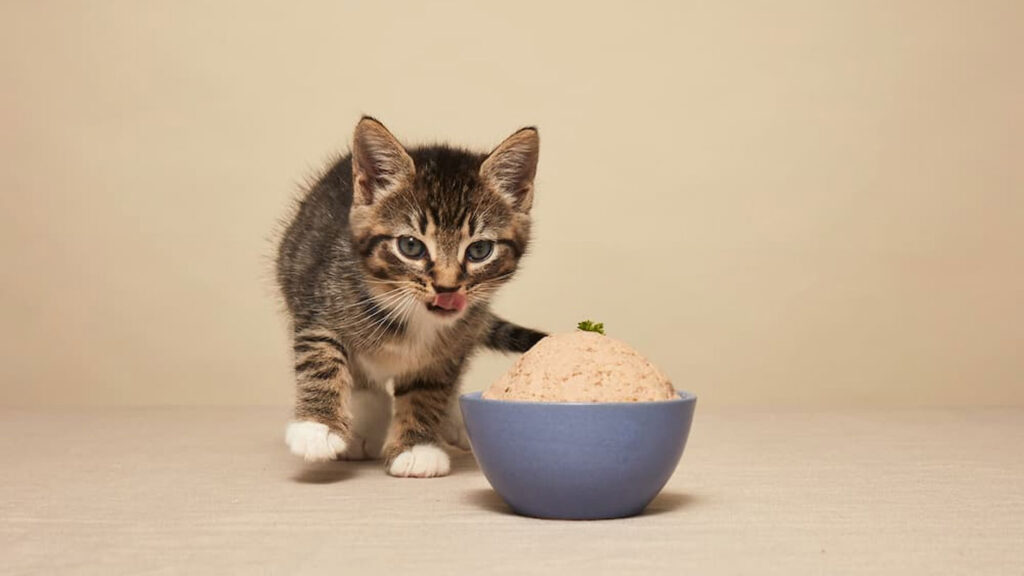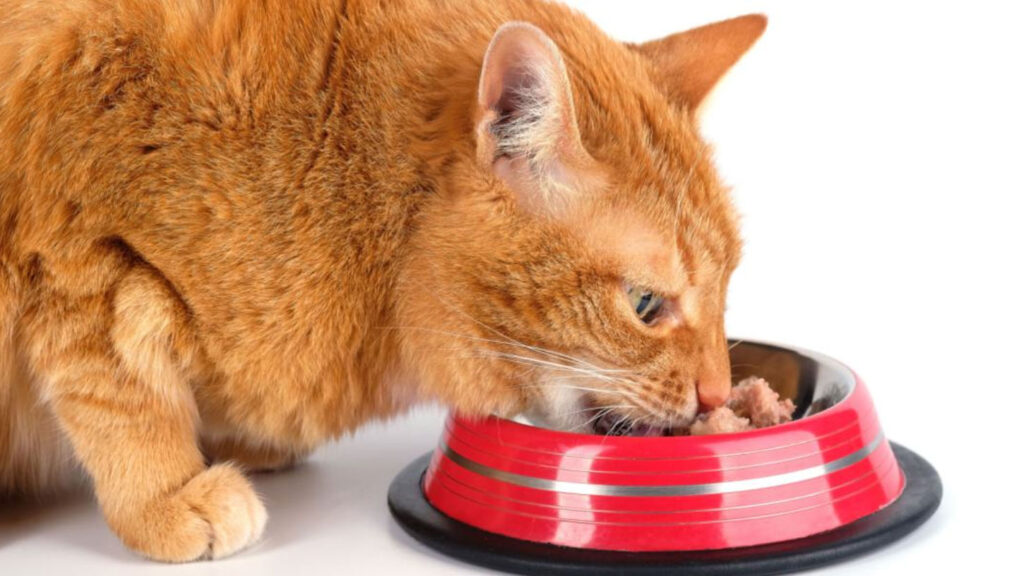Homemade cat nutrition supplements have their pros and cons. While they can provide control over ingredients and potentially address dietary sensitivities, ensuring nutritional balance and using vet-approved recipes is crucial to avoid health problems.
Additionally, it is important to consider the advantages of commercial diets in terms of convenience and comprehensive nutrient profiles.
Pros Of Homemade Cat Nutrition Supplements
When it comes to feeding your beloved feline friend, ensuring they receive proper nutrition is of utmost importance. While commercial cat food is readily available and convenient, many cat owners are turning to homemade cat nutrition supplements for a variety of reasons. Let’s explore the pros of homemade cat nutrition supplements to see if they may be a good fit for your furry companion.
Control over ingredients and quality
One of the main advantages of homemade cat nutrition supplements is the ability to have full control over the ingredients you use. When you prepare your cat’s food at home, you can carefully select high-quality, wholesome ingredients that meet your cat’s specific dietary needs and preferences.
This means you can avoid synthetic additives, preservatives, and fillers that may be present in commercial cat food. By handpicking the ingredients, you have the power to prioritize your cat’s health and well-being.
Personalized nutrition for specific cat needs
Every cat is unique, and they may have different nutritional requirements based on factors such as age, breed, activity level, and any existing health conditions. Homemade cat nutrition supplements give you the flexibility to customize your cat’s diet according to their specific needs.
You can incorporate ingredients that promote healthy skin, a shiny coat, strong teeth and bones, and a robust immune system. With a personalized approach, you can address your cat’s individual needs and potentially improve their overall health and vitality.
Potential cost savings
In addition to the control over ingredients and personalized nutrition, homemade cat nutrition supplements may provide potential cost savings in the long run. While there may be an initial investment in purchasing high-quality ingredients and necessary supplements, preparing your cat’s food at home can be more cost-effective compared to continuously purchasing commercial cat food.
By buying ingredients in bulk and utilizing leftovers from your own meals, you can stretch your budget while still providing your cat with nutritious meals.

Cons Of Homemade Cat Nutrition Supplements
Risk of nutrient imbalances
One of the key concerns with homemade cat nutrition supplements is the risk of nutrient imbalances. Cats have unique dietary requirements that must be met to ensure their overall health and well-being. When creating homemade cat nutrition supplements, it can be challenging to strike the right balance of essential nutrients such as proteins, vitamins, and minerals.
Without proper knowledge or guidance, there is a high chance of over or under-supplementing certain nutrients, which can lead to serious health issues for your feline friend.
Time-consuming preparation and planning
Another drawback of homemade cat nutrition supplements is the significant amount of time and effort required for preparation and planning. Unlike commercial cat supplements, which are conveniently available in pre-measured portions, homemade supplements demand meticulous preparation. This involves researching and sourcing the right ingredients, calculating serving sizes based on your cat’s nutritional requirements, and ensuring proper storage and shelf-life.
Additionally, the preparation process requires time-consuming cooking, blending, and portioning. This extensive planning and preparation can be quite overwhelming, especially for busy pet owners.
Lack of scientific research and guidance
A major concern surrounding homemade cat nutrition supplements is the lack of scientific research and guidance. Unlike commercial cat supplements, which undergo rigorous testing and adhere to industry standards, homemade supplements are often based on personal opinions and trial and error.
While there may be some anecdotal evidence supporting the benefits of homemade supplements, they lack the scientific backing and expert guidance provided by veterinary nutritionists.
This absence of professional advice increases the risk of unintentional nutrient deficiencies or excesses, which can negatively impact your cat’s health.
Consultation with a board-certified veterinary nutritionist
For cat owners considering homemade cat nutrition supplements, it is crucial to consult with a board-certified veterinary nutritionist. These professionals have the expertise and knowledge to ensure that the homemade diet meets the nutritional needs of your feline friend. By working with a veterinary nutritionist, you can develop a tailored plan that includes the right balance of essential nutrients, vitamins, and minerals that your cat requires for optimal health.
Use of vet-approved recipes
When preparing homemade cat nutrition supplements, it is important to use vet-approved recipes. These recipes have been designed and formulated by veterinary nutritionists to provide a complete and balanced diet for cats. Vet-approved recipes take into account the specific nutritional requirements of cats, such as the need for high-quality protein, essential fatty acids, and specific vitamins and minerals. Using vet-approved recipes ensures that your homemade cat nutrition supplements are well-balanced and nutritionally adequate.
Regular monitoring and adjustment
Once you have started feeding your cat with homemade nutrition supplements, it is essential to regularly monitor their health and make any necessary adjustments to the diet. Cats have unique nutritional requirements that can vary depending on their age, weight, activity level, and overall health.
Regular monitoring allows you to identify any potential deficiencies or imbalances in their diet and make the necessary adjustments to ensure that your cat is receiving the correct nutrients.
This can involve adding specific supplements or adjusting the quantity of certain ingredients to maintain nutritional balance.
In conclusion, ensuring nutritional balance in homemade cat nutrition supplements involves consultation with a board-certified veterinary nutritionist, using vet-approved recipes, and regularly monitoring and adjusting the diet.
By following these practices, you can provide your cat with a homemade diet that meets their nutritional needs and promotes their overall health and well-being.

Common Pitfalls To Avoid In Homemade Cat Nutrition Supplements
Inadequate protein content
One common pitfall to avoid in homemade cat nutrition supplements is inadequate protein content. Cats are obligate carnivores, meaning they require a diet that is rich in animal-derived protein to meet their nutritional needs. Failing to provide enough protein can lead to various health issues, including muscle wasting and weakness.
To ensure that homemade cat nutrition supplements contain adequate protein, it is essential to include high-quality sources such as lean meats, poultry, and fish. These protein sources should be cooked thoroughly to eliminate the risk of bacterial contamination. Additionally, incorporating small amounts of organ meats, like liver or kidney, can provide additional essential nutrients that are beneficial to your cat’s overall health.
Insufficient essential nutrients
Another pitfall to avoid in homemade cat nutrition supplements is the omission of essential nutrients. Cats require specific vitamins, minerals, and fatty acids to thrive and maintain optimal health. Neglecting to include these nutrients in a homemade diet can result in deficiencies and potential long-term health problems.
To ensure homemade cat nutrition supplements are nutritionally balanced, it is crucial to consult with a board-certified veterinary nutritionist. These professionals can provide recipes that meet all of your cat’s dietary requirements. Additionally, incorporating whole foods, like fruits and vegetables, can help provide essential nutrients while offering variety and enrichment to your cat’s diet.
Over-reliance on supplements
One more pitfall to be cautious of is over-reliance on supplements in homemade cat nutrition supplements. While supplements can be beneficial in ensuring your cat receives all necessary nutrients, they should not be used as a substitute for a well-rounded diet. Relying too heavily on supplements can lead to an imbalance in nutrient intake and potential toxicity.
It is important to remember that supplements should only be used to complement a balanced homemade diet, rather than serving as the primary source of nutrition. Consulting with a veterinarian or veterinary nutritionist can help determine the appropriate supplements for your cat’s specific needs and ensure their safe and effective use.

Popular Homemade Cat Nutrition Supplements
Raw Meat Diets
One popular homemade cat nutrition supplement is the raw meat diet. This type of diet consists of feeding your cat raw, unprocessed meats such as chicken, beef, or fish. Advocates of this diet believe that it mimics the natural diet of cats in the wild and provides them with the necessary nutrients for optimal health.
Cooked Meat and Vegetable Diets
Another option for homemade cat nutrition supplements is a cooked meat and vegetable diet. This diet involves cooking meats such as chicken or turkey and combining them with vegetables such as carrots, peas, or spinach. Proponents of this diet claim that cooking the food helps to eliminate potential pathogens and provides easier digestion for cats.
Grain-Free Diets
Grain-free diets have gained popularity in recent years, not only among humans but also for cats. These diets focus on removing grains such as wheat, corn, or soy from the cat’s diet and substituting them with alternative carbohydrate sources such as potatoes or peas. The aim is to reduce potential allergens and provide a more natural diet for the cat.
Overall, each of these homemade cat nutrition supplements has its pros and cons. It is important to consult with a veterinarian or a board-certified veterinary nutritionist before making any changes to your cat’s diet. They can provide guidance on the best options for your cat’s specific needs to ensure they receive a balanced and healthy diet.
Addressing Concerns Related To Homemade Cat Nutrition Supplements
in this version, the assistant can outline the major points of the blog in HTML format with H3 headings.
Veterinary Opinions on Homemade Cat Food
According to Joe Bartges, DVM, PhD, a professor at the University of Georgia College of Veterinary Medicine, and a board-certified veterinary nutritionist, a homemade diet can be good for cats when done correctly. In fact, some argue that cats can do even better on a homemade diet than on commercial food.
However, it’s crucial to ensure nutritional balance in a homemade diet. Excess or deficiency of certain nutrients can lead to serious health problems. To maintain balance, it’s recommended to use vet-approved recipes only. Look for recipes created by board-certified veterinary nutritionists, which can be found through the American College of Veterinary Nutrition.
Safety Considerations for Raw Diets
Raw diets are becoming increasingly popular for cats. While these diets can offer several benefits, it’s important to address safety considerations. Raw diets may carry a higher risk of foodborne illnesses, as they can contain bacteria such as Salmonella or E. coli. It is crucial to handle and store raw ingredients properly to minimize these risks.
When feeding a raw diet, ensure that all ingredients are of high quality and sourced from reputable suppliers. Thoroughly clean and sanitize all preparation surfaces, utensils, and feeding bowls to prevent cross-contamination. Additionally, handle raw ingredients separately from other food items and always wash your hands thoroughly after handling raw ingredients or cleaning utensils.
Importance of Proper Handling and Storage
Proper handling and storage are crucial to ensure the safety and integrity of homemade cat nutrition supplements. When it comes to homemade cat food, it’s important to handle ingredients with care to minimize the risk of contamination.
Proper storage is also essential to maintain the freshness and nutritional value of homemade cat food. Store homemade cat food in airtight containers and refrigerate or freeze it promptly to avoid spoilage. Be sure to follow the recommended guidelines for storage duration to ensure the food remains safe and nutritious for your cat.

Transitioning To Homemade Cat Nutrition Supplements
Transitioning your cat to a homemade diet can be a beneficial choice for their overall nutrition. However, it is essential to approach this transition with caution to ensure their well-being. With the following considerations, you can smoothly introduce homemade cat nutrition supplements into their diet:
Gradual introduction of new diet
When transitioning your cat to a homemade diet, it is vital to introduce the new food gradually. This gradual approach allows them to adjust to the new flavors, textures, and ingredients without upsetting their digestive system.
Start by mixing a small portion of the homemade food with their current diet and gradually increase the proportion of homemade food over a period of several days or weeks.
This slow transition helps prevent any sudden dietary changes from causing digestive issues for your furry friend.
Monitoring for any adverse reactions
During the transition period, it is important to closely monitor your cat for any adverse reactions to the homemade cat nutrition supplements. Watch for changes in their appetite, energy levels, stool consistency, and overall demeanor.
If you notice any negative reactions such as vomiting, diarrhea, or significant changes in behavior, it may indicate that the new diet is not suitable for your cat. In such cases, consult with your veterinarian to determine the best course of action.
Seeking veterinary guidance if necessary
Before embarking on a homemade cat nutrition supplement regimen, it is always recommended to seek veterinary guidance. While homemade diets can offer numerous benefits, it is essential to ensure they meet all of your cat’s nutritional requirements.
A board-certified veterinary nutritionist can provide expert advice and create personalized recipes tailored to your cat’s specific needs. They can guide you on the appropriate supplements to incorporate into their diet to ensure they receive all the necessary vitamins and minerals.
Transitioning to homemade cat nutrition supplements can be a rewarding way to provide your cat with a wholesome and balanced diet. By gradually introducing the new diet, monitoring for adverse reactions, and seeking veterinary guidance when necessary, you can ensure your cat’s nutritional needs are met through homemade supplementation.
Frequently Asked Questions Of The Pros And Cons Of Homemade Cat Nutrition Supplements
Is Homemade Cat Food Healthy For Cats?
A homemade cat food diet can be healthy for cats if prepared correctly by a board-certified veterinary nutritionist. Some argue that it is even better than commercial diets. Ensure nutritional balance and use vet-approved recipes to avoid nutrient deficiencies.
Do Vets Recommend Homemade Cat Food?
Homemade cat food can be recommended by vets if done correctly, with vet-approved recipes and nutritional balance. It can be a good option for cats with dietary sensitivities or those that refuse commercial food. However, homemade cat food is not necessarily healthier than commercial diets.
Is It Better To Make Homemade Cat Food?
Homemade cat food can be a good option for cats with dietary sensitivities or allergies. It allows you to control the ingredients and avoid processed foods. However, it’s important to ensure nutritional balance and use vet-approved recipes to prevent deficiencies or excesses of nutrients.
Consult a board-certified veterinary nutritionist for guidance.
What Are The Best Supplements To Add To Homemade Cat Food?
The best supplements to add to homemade cat food are Taurine, Wild Salmon or Wild Caught Small Fish Oil, Vitamin E, Vitamin B-Complex, Lite Salt Containing Iodine, and Psyllium Husk Powder. These supplements ensure nutritional balance and support your cat’s overall health.
Conclusion
Homemade cat nutrition supplements have their own set of pros and cons. On the positive side, homemade supplements allow you to control the ingredients and tailor them to your cat’s specific needs. This can be beneficial for cats with dietary sensitivities or allergies.
However, it is important to ensure proper nutritional balance and consult with a board-certified veterinary nutritionist to avoid any deficiencies or excesses.
Ultimately, the decision to opt for homemade supplements depends on your cat’s individual circumstances and your ability to provide a well-rounded diet.


